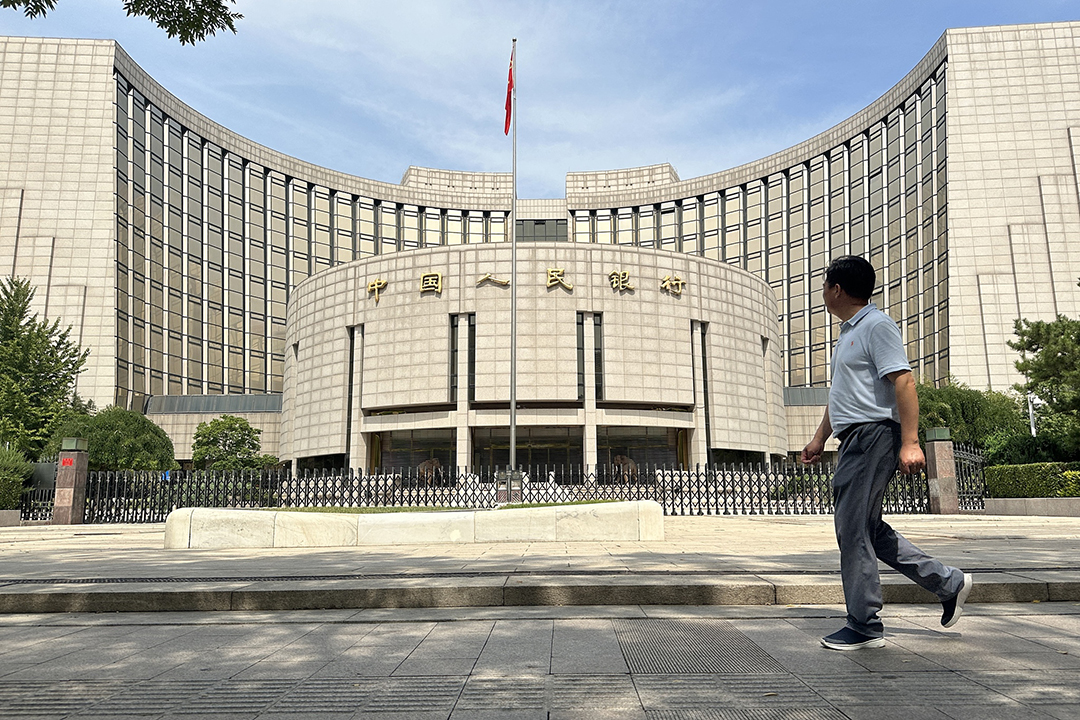PBOC Bond-Borrowing Plan Fuels Expectation of Action to Raise Yields
Listen to the full version

The People’s Bank of China’s (PBOC) plan to cool a bond rally that’s sent yields to record lows may stabilize the market in the short term, but investors’ appetite for the securities is unlikely to reverse until confidence in the economy returns, analysts said.
The central bank on Monday announced its decision to borrow treasury bonds from primary dealers, financial institutions approved to trade securities with the government, to “maintain the stable and healthy operation of the bond market.” The one-sentence statement fueled expectations the central bank will subsequently sell the securities into the secondary market to calm the bond-buying frenzy and to push government bond yields back up to what the PBOC considers an appropriate level.

Download our app to receive breaking news alerts and read the news on the go.
Get our weekly free Must-Read newsletter.
- DIGEST HUB
- The PBOC plans to borrow treasury bonds from primary dealers to stabilize the bond market and address the rally that led to record-low yields.
- This measure aims to address concerns that bond buying with borrowed funds amplifies market volatility and risks, similar to issues that led to Silicon Valley Bank's collapse.
- Analysts expect the PBOC to sell borrowed bonds in the secondary market to guide yields up, but sustained improvement will depend on broader economic recovery and policy support.
The People's Bank of China (PBOC) has implemented measures to cool a bond rally that has resulted in record low yields. This initiative may stabilize the market temporarily, but analysts suggest that a significant shift in investors' preferences for these securities will only occur with restored confidence in the economy [para. 1].
On Monday, the PBOC declared its intent to borrow treasury bonds from primary dealers — financial institutions approved to trade securities with the government — to ensure the stable and healthy operation of the bond market. The underlying expectation is that the PBOC will eventually offload these borrowed bonds into the secondary market to temper the bond-buying surge and elevate government bond yields to a level deemed appropriate by the central bank [para. 2].
Investor interest in China's sovereign bonds has surged due to uncertainties about the country's economic recovery, low bank savings rates, and anticipated further interest-rate cuts. This intense buying activity has significantly increased bond prices while reducing returns, with the yield on the 10-year government bond dropping to a historic low of 2.18% prior to the PBOC’s announcement [para. 3].
The PBOC has issued warnings about the risks of bond buying using borrowed funds, noting that it amplifies market volatility and the potential for significant losses if market conditions reverse. The central bank sees long-term government debt yields as currently too low [para. 4][para. 5]. Analysts suggest that concerns about financial institutions’ exposure to treasury bonds, especially insurers holding large amounts of long-duration bonds, are a probable cause for the PBOC’s decision. Substantial losses for these institutions could pose risks to financial stability similar to the collapse of Silicon Valley Bank (SVB), which suffered from a dramatic drop in asset values due to rising market interest rates [para. 5][para. 6].
The strategies focusing on short-term gains, such as those employed by mutual funds, can compound risks. When bond prices fall, these institutions might rapidly divest, exacerbating price declines [para. 7].
Despite the PBOC's concise statement, it is widely anticipated that the central bank will sell the borrowed bonds in the secondary market to manage the falling government bond yields, at least for a short time [para. 8]. According to analysts from Yuekai Securities Co. Ltd., these sales could ensure yields rebound to a range of 2.5% to 3%, compared to China's potential growth rate of 5%. Current long-term treasury yields have dropped below this range [para. 9].
To have a noticeable impact on interest rates, the PBOC may need to scale its bond sales significantly, potentially involving tens of billions of yuan, according to Huatai Securities Co. Ltd. analysts. Lower-scale sales below 10 billion yuan would likely serve as market guidance rather than having a substantial effect [para. 10].
In the longer term, analysts such as Wei He from Gavekal Dragonomics argue that significant improvements in economic fundamentals are necessary for a more substantial rise in bond yields. Continuing loose liquidity conditions and slowing loan growth point to weak borrowing demand, leading financial institutions to opt for government bonds, thereby keeping yields low. Substantial fiscal and monetary policy support will be needed to reverse the downward trend in long-term bond yields [para. 11][para. 12].
- Citic Securities Co. Ltd.
- Citic Securities Co. Ltd. analysts noted that concerns over financial institutions' heavy exposure to long-term government bonds likely motivated the PBOC's recent action. They warned that institutions, such as insurers holding substantial 10-year or 30-year bonds, could suffer significant losses if the bond market reverses, potentially destabilizing the financial system.
- Yuekai Securities Co. Ltd.
- Yuekai Securities Co. Ltd. analysts highlighted several points in the article. They noted that overexposure to treasury bonds by institutions seeking short-term profits can lead to greater risks. They also believe the PBOC's borrowed bonds could be quickly sold in the secondary market to guide yields, and they emphasized that long-term bond yield trajectories depend on economic fundamentals, recommending stronger government fiscal and monetary policy support.
- Silicon Valley Bank
- Silicon Valley Bank (SVB) was a U.S. bank whose parent group, SVB Financial Group, bought extensive long-term U.S. Treasurys and government-backed mortgage securities. A sudden drop in the value of these assets due to surging market interest rates led to massive losses for the bank, contributing to its collapse.
- Huatai Securities Co. Ltd.
- Huatai Securities Co. Ltd. analysts noted that the daily trading volume of treasury bonds in China's secondary market ranges between 400 billion yuan ($55 billion) and 500 billion yuan. They suggest that for the central bank to meaningfully influence interest rates through bond sales, it would need to sell at least tens of billions of yuan worth of bonds. If the sales are below 10 billion yuan, it would likely be a signal intended to guide the market rather than exert a substantial impact.
- Gavekal Dragonomics
- Gavekal Dragonomics is referenced in the article through economist Wei He, who provides insights on the Chinese bond market. According to the article, Wei He suggests that the long-term government bond yields are unlikely to rise significantly due to an uninspiring growth outlook, loose liquidity conditions maintained by the PBOC, and slowing loan growth coupled with weak borrowing demand, which sustains robust demand for government bonds and keeps yields low.
- 2024-07-01:
- The People's Bank of China (PBOC) announced its decision to borrow treasury bonds from primary dealers.
- 2024-07-01:
- On the same day, the yield on the benchmark 10-year government bond declined to a record low of 2.18% before the PBOC statement.
- 2024-07-02:
- Wei He, an economist at Gavekal Dragonomics, wrote that yields are unlikely to rise much due to the uninspiring growth outlook and relatively loose liquidity conditions maintained by the PBOC.
- PODCAST
- MOST POPULAR







 Sign in with Google
Sign in with Google
 Sign in with Facebook
Sign in with Facebook
 Sign in with 财新
Sign in with 财新